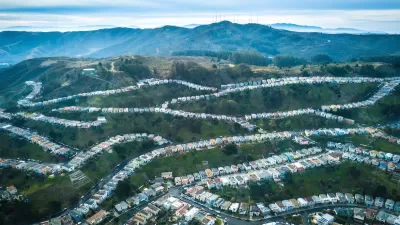The latest figures from Statistics Canada on household spending show that Canadians are spending more for basics, including shelter and public transportation.
[From the Globe and Mail]:
"Canadians are spending a greater chunk of their incomes on housing while the proportion devoted to personal taxes has hit a 14-year low, a government report showed Tuesday.
Canadians were in an expansive mood in 2006, spending 4.6 per cent more than in 2005 -- over twice the rate of inflation, Statistics Canada said in its survey of household spending. The biggest share of Canadian household budgets was still on personal taxes, shelter and transportation, at 20 per cent, 19 per cent and 14 per cent, respectively. The poorest fifth of the population spend most of their budget on food and shelter, while the wealthiest fifth spend the most on taxes and shelter."
[From the Survey]:
"Spending on shelter rose 5% to an average of $12,990, largely the result of increases in spending of 14% in Alberta, 7% in Saskatchewan, and 6% in British Columbia. Shelter costs in Alberta rose by 10% in 2006, according to the CPI.
Household spending on transportation rose 4% at the national level, to an average of $9,240, but at the provincial level, trends varied widely. Households in Alberta spent an average of $12,160 on transportation, up 19% from 2005. Spending on vehicle purchases alone was up 22% over the previous year in this province.
Canadians used public transportation more in 2006, with spending increasing 17% to $970. Most of this was for air travel, which increased by 22% to $530 per household. Spending for city commuter bus, subway and other means of public transport rose by 11% to $220.
Households in Alberta reported the highest spending on communications, $1,900, up 15% from the previous year.
Calgary was the most wireless city, with 87% of households having a cell phone. Households in Calgary spent $750 on average on cell phones in 2006, more than they did on conventional phone lines ($700)."
FULL STORY: Canadians spend more on housing, less on taxes

Depopulation Patterns Get Weird
A recent ranking of “declining” cities heavily features some of the most expensive cities in the country — including New York City and a half-dozen in the San Francisco Bay Area.

California Exodus: Population Drops Below 39 Million
Never mind the 40 million that demographers predicted the Golden State would reach by 2018. The state's population dipped below 39 million to 38.965 million last July, according to Census data released in March, the lowest since 2015.

Pennsylvania Mall Conversion Bill Passes House
If passed, the bill would promote the adaptive reuse of defunct commercial buildings.

Google Maps Introduces New Transit, EV Features
It will now be easier to find electric car charging stations and transit options.

Ohio Lawmakers Propose Incentivizing Housing Production
A proposed bill would take a carrot approach to stimulating housing production through a grant program that would reward cities that implement pro-housing policies.

Chicago Awarded $2M Reconnecting Communities Grant
Community advocates say the city’s plan may not do enough to reverse the negative impacts of a major expressway.
City of Costa Mesa
Licking County
Barrett Planning Group LLC
HUD's Office of Policy Development and Research
Mpact Transit + Community
HUD's Office of Policy Development and Research
City of Universal City TX
ULI Northwest Arkansas
Town of Zionsville
Urban Design for Planners 1: Software Tools
This six-course series explores essential urban design concepts using open source software and equips planners with the tools they need to participate fully in the urban design process.
Planning for Universal Design
Learn the tools for implementing Universal Design in planning regulations.























